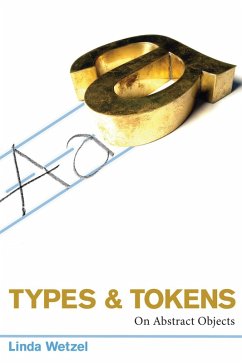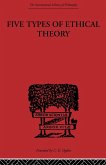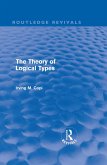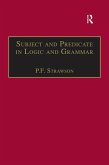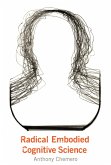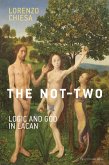A consideration of the distinction between the spatiotemporal furniture of the world (tokens) and the types of which they are instances, and an argument that types exist.
There is a widely recognized but infrequently discussed distinction between the spatiotemporal furniture of the world (tokens) and the types of which they are instances. Words come in both types and tokens—for example, there is only one word type 'the' but there are numerous tokens of it on this page—as do symphonies, bears, chess games, and many other types of things. In this book, Linda Wetzel examines the distinction between types and tokens and argues that types exist (as abstract objects, since they lack a unique spatiotemporal location). Wetzel demonstrates the ubiquity of references to (and quantifications over) types in science and ordinary language; types have to be reckoned with, and cannot simply be swept under the rug. Wetzel argues that there are such things as types by undermining the epistemological arguments against abstract objects and offering extended original arguments demonstrating the failure of nominalistic attempts to paraphrase away such references to (and quantifications over) types. She then focuses on the relation between types and their tokens, especially for words, showing for the first time that there is nothing that all tokens of a type need have in common other than being tokens of that type. Finally, she considers an often-overlooked problem for realism having to do with types occurring in other types (such as words in a sentence) and proposes an important and original solution, extending her discussion from words and expressions to other types that structurally involve other types (flags and stars and stripes; molecules and atoms; sonatas and notes).
There is a widely recognized but infrequently discussed distinction between the spatiotemporal furniture of the world (tokens) and the types of which they are instances. Words come in both types and tokens—for example, there is only one word type 'the' but there are numerous tokens of it on this page—as do symphonies, bears, chess games, and many other types of things. In this book, Linda Wetzel examines the distinction between types and tokens and argues that types exist (as abstract objects, since they lack a unique spatiotemporal location). Wetzel demonstrates the ubiquity of references to (and quantifications over) types in science and ordinary language; types have to be reckoned with, and cannot simply be swept under the rug. Wetzel argues that there are such things as types by undermining the epistemological arguments against abstract objects and offering extended original arguments demonstrating the failure of nominalistic attempts to paraphrase away such references to (and quantifications over) types. She then focuses on the relation between types and their tokens, especially for words, showing for the first time that there is nothing that all tokens of a type need have in common other than being tokens of that type. Finally, she considers an often-overlooked problem for realism having to do with types occurring in other types (such as words in a sentence) and proposes an important and original solution, extending her discussion from words and expressions to other types that structurally involve other types (flags and stars and stripes; molecules and atoms; sonatas and notes).
Dieser Download kann aus rechtlichen Gründen nur mit Rechnungsadresse in A, B, BG, CY, CZ, D, DK, EW, E, FIN, F, GR, HR, H, IRL, I, LT, L, LR, M, NL, PL, P, R, S, SLO, SK ausgeliefert werden.

